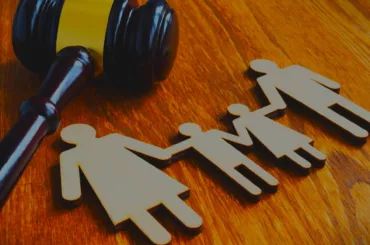Family law cases in California can be complex, emotional, and challenging. In some instances, the legal proceedings may result in a mistrial, further complicating the resolution of disputes. This article explores the top five causes of mistrials in California family law cases, strategies to prevent them, and how to navigate these difficult situations.
Understanding California Family Law
Before diving into the causes of mistrials, it’s essential to understand the basics of family law in California. Family law encompasses a range of legal matters, including divorce, child custody, child support, spousal support, and property division.
Divorce
Divorce, or dissolution of marriage, is the legal process by which a married couple terminates their marital relationship. In California, either spouse can file for divorce, and the state follows a “no-fault” divorce system, meaning that neither party has to prove the other spouse was at fault for the marriage’s breakdown.
Child Custody
Child custody refers to the legal rights and responsibilities of parents concerning their children after a separation or divorce. In California, the court considers the best interests of the child when determining custody arrangements.
Child Support
Child support is the financial obligation of a parent to contribute to the costs of raising their child after a separation or divorce. The amount of child support is determined by the California Child Support Guidelines, which consider both parents’ income, the child’s needs, and the time each parent spends with the child.
Spousal Support
Spousal support, or alimony, is the financial assistance one spouse provides to the other after a divorce. The purpose of spousal support is to help the receiving spouse maintain their standard of living and become self-supporting.
Property Division
California is a community property state, meaning that any assets or debts acquired during the marriage are typically divided equally between the spouses upon divorce.
The Concept of a Mistrial
Definition and Implications
A mistrial is a legal term that refers to a trial that has been terminated before its natural conclusion due to an error, problem, or other issue that prevents a fair and impartial verdict. When a mistrial occurs, the case may need to be retried, prolonging the legal process and increasing costs for all parties involved.
Most Common Causes of Mistrials in California Family Law Cases
Juror Misconduct
Juror misconduct is one of the most common reasons for a mistrial in family law cases. This can occur when a juror fails to follow the judge’s instructions, conducts independent research, communicates with parties involved in the case, or shares information about the trial with others outside the courtroom.
Improper Introduction of Evidence
Another common cause of mistrials is the improper introduction of evidence. This may occur when one party attempts to introduce evidence that is inadmissible, irrelevant, or prejudicial. If the improper evidence significantly impacts the trial’s outcome, the judge may declare a mistrial.
Ineffective Legal Representation
In some cases, mistrials may result from ineffective legal representation. This can happen when an attorney fails to competently represent their client, neglects to present crucial evidence, or demonstrates a lack of knowledge about the relevant laws and procedures. If the court determines that a party did not receive adequate representation, it may declare a mistrial.
Judicial Misconduct
Judicial misconduct occurs when a judge does not follow the law, exhibits bias, or engages in other inappropriate behavior during the trial. If the misconduct affects the trial’s fairness, a mistrial may be declared.
External Interference and Bias
External interference or bias, such as media influence or public opinion, can sometimes impact a family law trial. If it’s determined that these external factors have significantly influenced the trial’s outcome, a mistrial may be declared.
Strategies for Preventing Mistrials
Proper Legal Representation
One of the most effective ways to prevent a mistrial is to hire an experienced and competent family law attorney. A skilled lawyer will understand the intricacies of California family law, properly present evidence, and ensure your rights are protected throughout the legal process.
Understanding the Legal Process
Educating yourself about the family law process in California can help prevent misunderstandings and mistakes that may lead to a mistrial. Familiarize yourself with the relevant laws, court procedures, and your legal rights and responsibilities.
Effective Communication with Your Attorney
Maintaining open and honest communication with your attorney is crucial for preventing mistrials. Keep your attorney informed about all relevant facts, and ensure they have all the necessary documentation to support your case.
Upholding the Integrity of the Courtroom
All parties involved in a family law trial, including jurors and witnesses, should uphold the integrity of the courtroom by following the judge’s instructions, avoiding outside influences, and refraining from discussing the case with others not involved in the trial.
Here’s a draft of a printable checklist for preventing mistrials in California family law cases:
Checklist for Preventing Mistrials in California Family Law Cases
1. Choose the Right Attorney
– Research and interview multiple family law attorneys
– Select an attorney with a strong track record in California family law
– Look for an attorney who communicates effectively and listens to your concerns
2. Understand the Legal Process
– Familiarize yourself with the basics of California family law (divorce, child custody, child support, spousal support, property division)
– Learn about the court procedures and the timeline for your case
– Be aware of your legal rights and responsibilities
3. Maintain Effective Communication with Your Attorney
– Keep your attorney informed about all relevant facts and updates in your case
– Provide your attorney with all necessary documentation and evidence
– Regularly check in with your attorney and ask for updates on the progress of your case
4. Prepare for Court
– Review courtroom etiquette and dress code
– Be punctual and respectful in all court appearances
– Practice answering questions and presenting your case with your attorney
5. Uphold the Integrity of the Courtroom
– Follow the judge’s instructions during the trial
– Refrain from discussing the case with jurors, witnesses, or other parties outside the courtroom
– Avoid conducting independent research or sharing information about the trial on social media
By following these steps, you can minimize the risk of a mistrial and work toward a favorable resolution in your California family law case.
Conclusion
Mistrials in California family law cases can be frustrating and costly for all parties involved. Understanding the most common causes of mistrials and implementing strategies to prevent them can help ensure a fair and efficient legal process. By securing proper legal representation, understanding the legal process, and maintaining effective communication with your attorney, you can navigate the complexities of California family law and work toward a favorable resolution.
FAQs
A mistrial occurs when a trial is terminated before its natural conclusion due to an error or issue that prevents a fair and impartial verdict.
Hiring an experienced family law attorney, understanding the legal process, and maintaining open communication with your attorney are essential steps to help prevent a mistrial.
After a mistrial is declared, the case may need to be retried, prolonging the legal process and increasing costs for all parties involved.
A mistrial itself cannot be appealed; however, the party who believes the mistrial was declared in error may appeal the judge’s decision to declare a mistrial. If the appellate court agrees that the mistrial was not warranted, the case may be sent back to the trial court for further proceedings.
Juror misconduct, such as failing to follow the judge’s instructions, conducting independent research, or discussing the case with others outside the courtroom, can compromise the fairness of the trial. If the court determines that juror misconduct has significantly impacted the trial’s outcome, a mistrial may be declared.





1 Comment
Thank you somuch